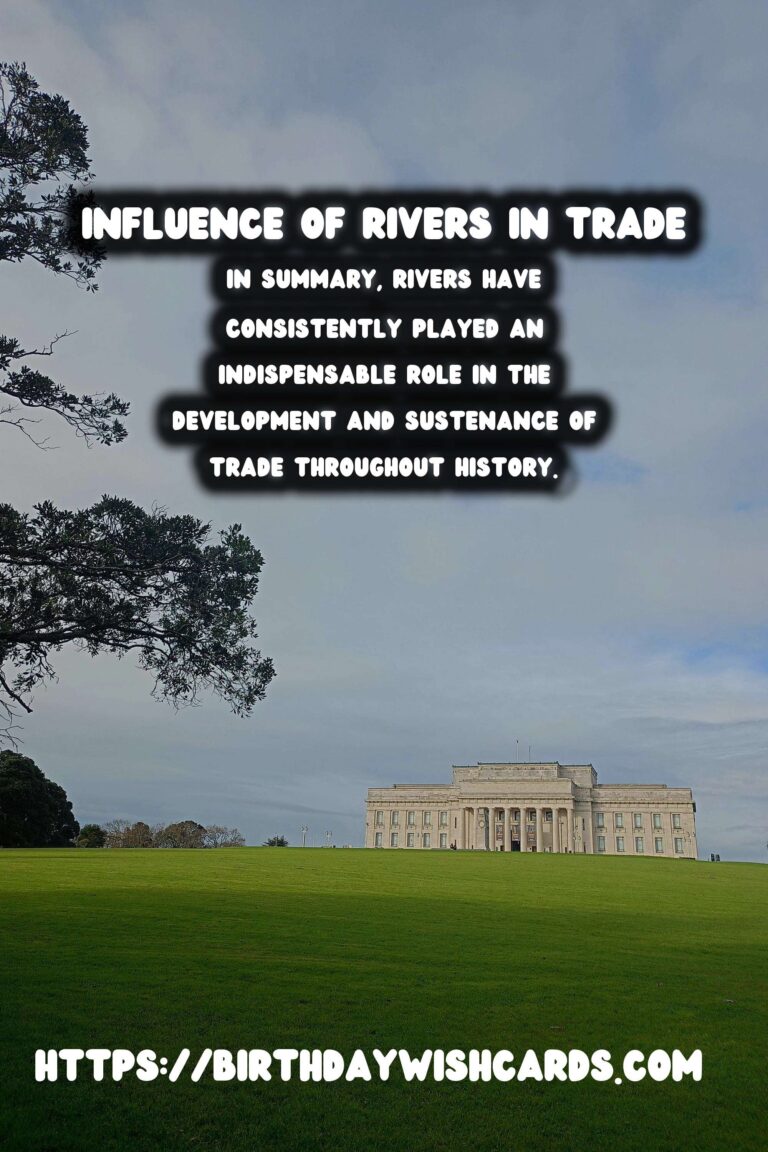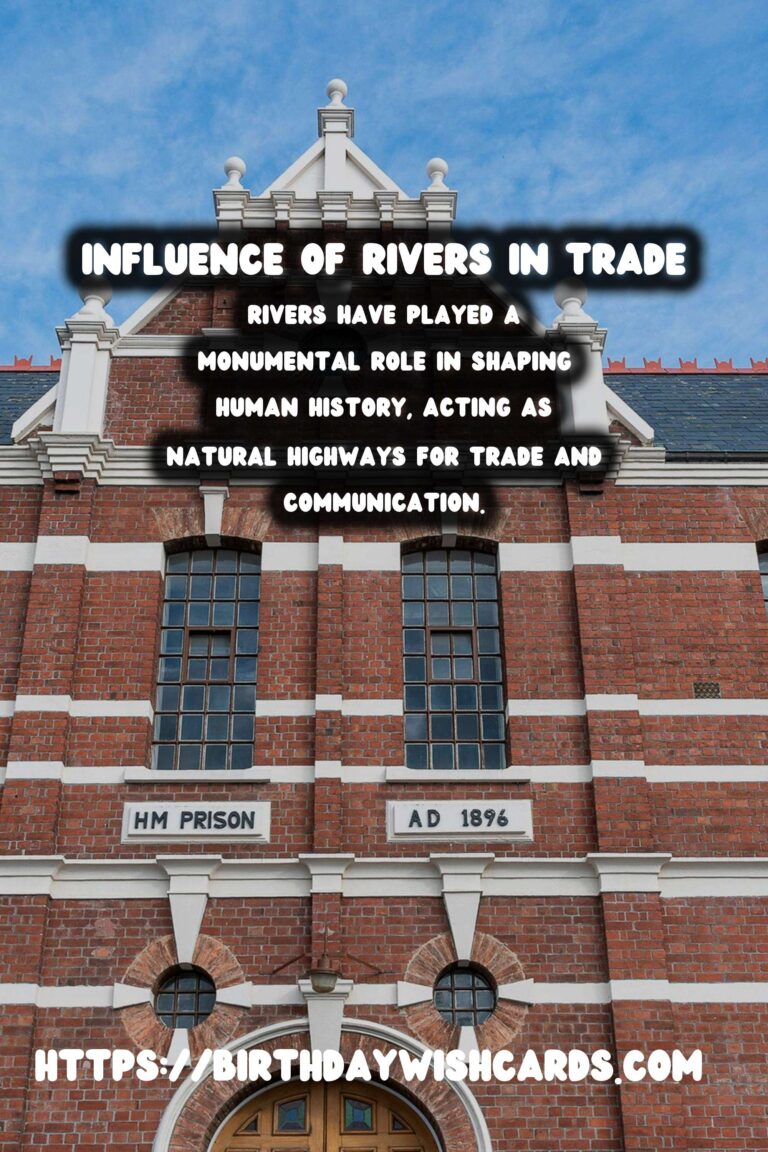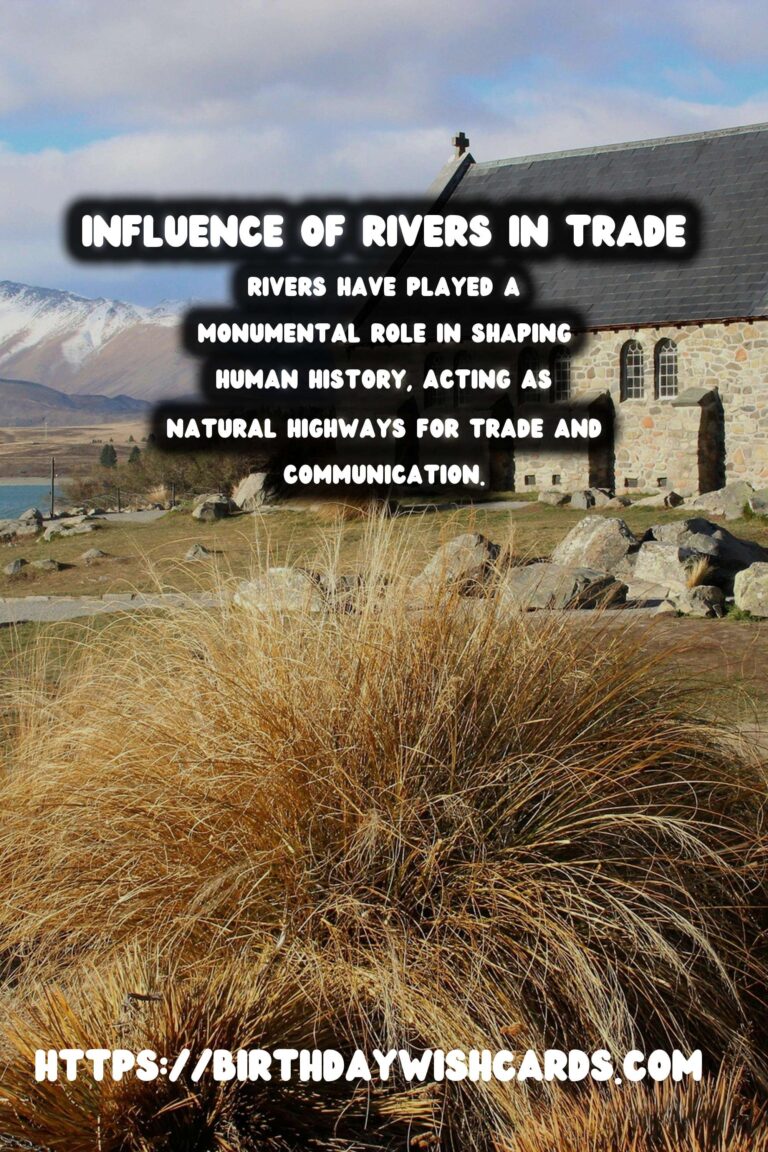
Rivers have played a monumental role in shaping human history, acting as natural highways for trade and communication. From ancient civilizations to the modern age, rivers have not only provided water and fertile land but have also served as crucial routes for the exchange of goods, ideas, and cultures.
Importance of Rivers in Early Civilizations
In the early stages of human development, rivers were pivotal to the survival and prosperity of civilizations. The Nile, Tigris, Euphrates, Indus, and Yellow rivers are among the most notable waterways that supported the most advanced societies of their time.
Rivers supplied water for agriculture, enabling the growth of stable communities and the surplus production of crops. This led to the establishment of complex social structures and the rise of cities.
Nile River: The Lifeblood of Egypt
The Nile River, often referred to as the lifeblood of Egypt, was crucial for agricultural success and trade in ancient times. Its predictable flooding cycles deposited nutrient-rich silt onto the lands, making them fertile for crops. Moreover, the Nile served as the main highway for transporting goods and people, facilitating trade throughout the region and beyond.
The Tigris and Euphrates: Cradle of Civilization
Mesopotamia, known as the ‘Cradle of Civilization’, thrived between the Tigris and Euphrates rivers. These rivers enabled irrigation, which supported agriculture and allowed the region to become a bustling trade hub. Goods like textiles, grains, and various crafts were traded both internally and with distant lands.
Indus River: Backbone of the Harappan Civilization
The Indus River nurtured the Harappan civilization, one of the largest of its time. The extensive trade network established along the Indus facilitated exchanges with Central Asian cultures and far-off regions, including Mesopotamia. This connectivity helped the Harappan society advance significantly in arts, urban planning, and technology.
Rivers in Medieval Trade
During the medieval period, European rivers such as the Danube, Rhine, and Seine became central to trade networks. Towns and cities sprouted along these water routes. These rivers supported the dissemination of goods such as timber, grain, wine, and salt across the continent, vastly contributing to economic growth and cultural exchange.
China’s Grand Canal is another example of riverine trade routes transforming regional trade. Connecting the Yellow and Yangtze Rivers, this canal facilitated economic interactions between China’s northern and southern regions, ensuring the uninterrupted flow of goods, including silk and tea.
Modern-Day Trade and Rivers
Although technological advancements have transformed trade, rivers continue to influence modern-day commerce. The Amazon, Mississippi, and Yangtze rivers still serve as pivotal routes for transporting essential commodities. River ports have evolved to accommodate modern logistics and trade efficiency, ensuring significant contributions to regional economies and international trade.
Environmental and Economic Challenges
Despite their economic importance, rivers face environmental challenges, including pollution, habitat destruction, and climate change impacts. Sustainable practices are essential to preserving these waterways as vital trade routes and ecological resources.
Conclusion
In summary, rivers have consistently played an indispensable role in the development and sustenance of trade throughout history. Their influence in shaping civilizations, supporting economic growth, and fostering cultural exchange cannot be overemphasized. Future preservation efforts will be critical to maintaining their legacy for generations to come.
Rivers have played a monumental role in shaping human history, acting as natural highways for trade and communication. In summary, rivers have consistently played an indispensable role in the development and sustenance of trade throughout history. 









#Rivers #HistoricalTrade




